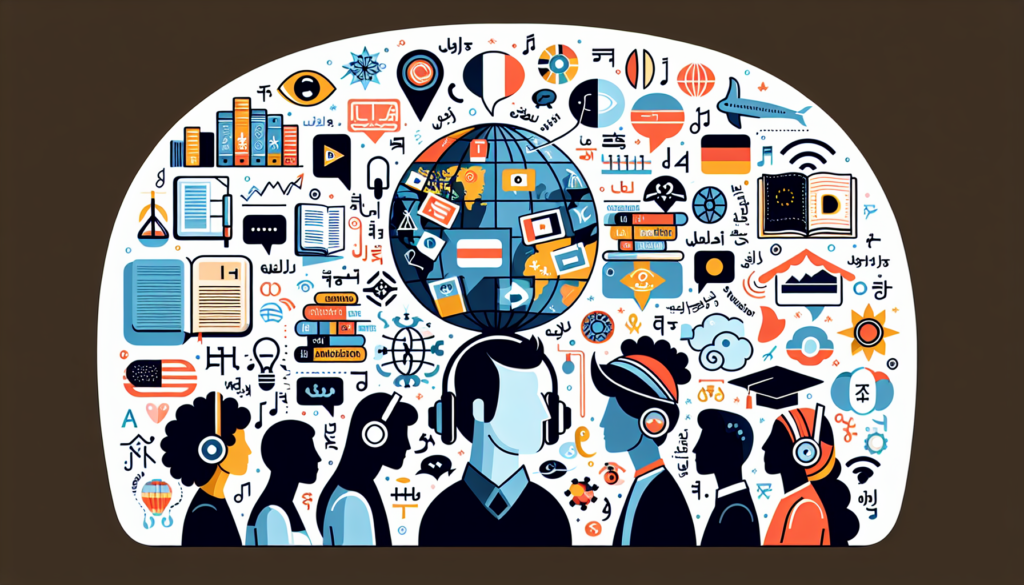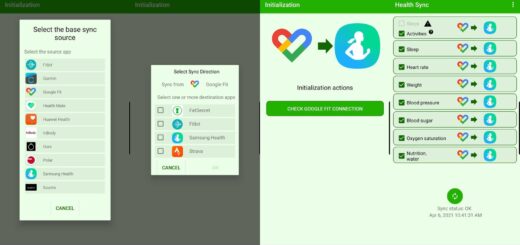How Do You Learn a New Language?
Learning a new language can be an exciting yet daunting challenge. From mastering grammar rules to memorizing vocabulary, it’s an intricate journey that requires patience and dedication. In this article, we will explore effective strategies and techniques that can help you navigate this linguistic adventure, making the process more enjoyable and rewarding. Whether you’re starting from scratch or looking to enhance your existing language skills, we’ve got you covered!

Setting Goals and Motivation
Learning a new language can be an exciting and rewarding journey, but it’s essential to start with a clear sense of purpose and motivation. Understanding your motivation for learning a new language is crucial as it will drive your commitment and determination throughout the process.
Identifying Your Motivation
Take some time to reflect on why you want to learn a new language. Is it for personal growth, career opportunities, travel, or connecting with others? Understanding your motivations will help you stay focused and committed when faced with challenges.
Setting Specific Goals
Setting specific language learning goals is essential to keep you motivated and measure your progress. Rather than having a vague goal like “I want to learn a new language,” be specific about what you want to achieve. For example, “I want to be able to have a basic conversation in Spanish within six months.”
Creating a Realistic Timeline
Learning a new language takes time and effort, so it’s important to set a realistic timeline for yourself. Consider your other commitments and allocate enough time each week to study and practice. Breaking your language learning journey into smaller milestones can help you stay motivated and track your progress along the way.
Choosing the Right Language
With thousands of languages spoken around the world, choosing the right language for you is an important decision. Consider the following factors when selecting a language to learn.
Considering Your Interests and Needs
Think about your interests, hobbies, and future plans. Do you have a particular passion for a specific country or culture? Are you considering a career that could benefit from learning a certain language? By aligning your language choice with your interests and needs, you’ll stay engaged and motivated throughout the learning process.
Assessing the Language Difficulty
Every language has its own level of difficulty, and understanding this can help you set realistic expectations. Some languages, such as Spanish or Italian, share similarities with English, making them relatively easier to learn. On the other hand, languages like Mandarin or Arabic may have a steeper learning curve due to different writing systems and pronunciation.
Exploring the Cultural Aspect
Learning a new language isn’t just about mastering grammar and vocabulary; it also involves immersing yourself in the culture. Consider the cultural aspects associated with the language you choose – the literature, music, films, and traditions. If you feel a connection to the culture, your language learning journey will become even more enjoyable and meaningful.
Selecting Learning Resources
Once you’ve chosen a language to learn, it’s time to explore the wide range of learning resources available to you. Here are a few options to consider:
Textbooks and Online Courses
Traditional textbooks and online courses can provide a structured approach to language learning. Look for resources that suit your preferred learning style and offer comprehensible explanations, practice exercises, and audio materials.
Language Learning Apps
With advancements in technology, language learning apps have become popular and convenient options. Apps like Duolingo, Babbel, and Rosetta Stone provide interactive lessons, vocabulary drills, and even gamified learning experiences that make language learning engaging and fun.
Online Communities and Language Exchange Platforms
Joining online communities and language exchange platforms can be immensely helpful in your language learning journey. Websites like iTalki, HelloTalk, and Tandem allow you to connect with native speakers around the world for language practice and cultural exchange. These platforms give you the opportunity to engage in authentic conversations and receive valuable feedback on your progress.
Building Vocabulary
Building a strong vocabulary is essential for effective communication in any language. Here are some strategies to help you expand your word bank:
Learning the Most Common Words
Start by learning the most commonly used words in your chosen language. These words, known as high-frequency words, form the foundation of a language and are used in everyday communication. Learning them gives you a solid base to build upon.
Expanding Vocabulary Through Reading
Reading is an excellent way to expose yourself to new words and phrases. Start with simple texts, such as children’s books or graded readers, and gradually work your way up to more complex materials. Make a habit of looking up unfamiliar words and noting them down for future review.
Utilizing Flashcards and Spaced Repetition
Flashcards are a tried-and-true method for vocabulary retention. You can create physical flashcards using index cards or utilize digital flashcard apps like Anki or Quizlet. Practice regularly and employ spaced repetition techniques to reinforce your memory and ensure long-term retention of new vocabulary.

Developing Listening Skills
Being able to understand spoken language is a crucial aspect of language learning. Here are some strategies to develop your listening skills:
Listening to Audio Materials and Podcasts
Expose yourself to a variety of audio materials in your target language. This can include podcasts, audiobooks, or even language learning CDs. Start with content that matches your current proficiency level and gradually challenge yourself with more complex materials as you improve.
Watching Movies and TV Shows in the Target Language
Watching movies and TV shows in the target language can not only improve your listening skills but also help you pick up on cultural nuances and idiomatic expressions. Consider using subtitles in the target language to aid comprehension, and gradually try watching without them as your proficiency improves.
Engaging in Conversations with Native Speakers
Practicing your listening skills by engaging in conversations with native speakers is invaluable. Seek out language exchange partners or native speakers through language communities and platforms. Actively listen, ask for clarification when needed, and familiarize yourself with different accents and speech patterns.
Improving Speaking Skills
Speaking fluently and confidently in a new language can be a challenging goal to achieve. Here are some strategies to improve your speaking skills:
Practicing Pronunciation
Focus on mastering the pronunciation of the target language. Pay attention to the sounds, intonation, and rhythm of the language. Mimic native speakers by listening to audio resources or by using language learning apps that provide pronunciation guides.
Participating in Language Exchange or Tandem Programs
Language exchange programs, where you can practice your language skills with native speakers who are learning your native language, can be highly beneficial. You can engage in conversations, correct each other’s mistakes, and gain valuable insight into the culture and everyday language usage.
Joining Language Conversation Groups
Join language conversation groups or clubs in your local community or online. These groups often organize regular meetups where you can practice speaking with other language learners and native speakers. Take advantage of these opportunities to gain confidence and improve your speaking skills in a supportive environment.
Enhancing Reading Comprehension
Reading is a fundamental skill that helps you deepen your understanding of a language. Here’s how you can enhance your reading comprehension:
Starting with Simple Texts
Begin with simple texts specifically designed for language learners. Children’s books, graded readers, and online articles written for beginners are excellent starting points. Focus on understanding the main ideas and gradually work towards more challenging texts.
Reading Books, Newspapers, and Online Articles
As your reading skills improve, diversify your reading materials. Explore books, newspapers, and online articles that align with your interests. This will expose you to different writing styles, vocabulary, and cultural aspects of the language.
Analyzing and Summarizing Texts
To further develop your comprehension skills, practice analyzing and summarizing texts. Identify the main ideas, key supporting details, and the author’s intended message. This exercise will not only strengthen your reading skills but also help you express your thoughts more effectively in the target language.
Mastering Grammar
Grammar forms the backbone of any language, and understanding its rules and structures is crucial for effective communication. Here’s how you can master grammar:
Understanding Grammar Rules and Structures
Start by familiarizing yourself with the basic grammar rules and sentence structures of the target language. Use grammar textbooks, online resources, or language learning apps that provide clear explanations and examples.
Practicing Through Exercises and Quizzes
Apply grammar rules through practice exercises and quizzes. Many language learning resources offer interactive exercises to help you reinforce your understanding of grammar concepts. Allocate regular time for practice to internalize the rules and improve your accuracy and fluency.
Seeking Assistance from Language Tutors or Teachers
If you find certain grammar concepts challenging to grasp on your own, consider seeking assistance from language tutors or teachers. They can provide personalized guidance, correction, and explanations tailored to your specific learning needs.
Writing in the Target Language
Writing is an essential skill that allows you to express your thoughts and ideas in the target language. Here’s how you can improve your writing skills:
Keeping a Language Learning Journal
Start by keeping a language learning journal where you can regularly write about your experiences, thoughts, and observations. This practice encourages regular writing and allows you to reflect on your progress. Use online language learning platforms or language exchange apps to connect with native speakers who can help correct your writing.
Practicing Writing Exercises
Engage in targeted writing exercises to improve your skills. Write short essays, letters, or journal entries on specific topics. Pay attention to grammar, vocabulary, and overall coherence. Review and revise your work, seeking feedback from native speakers or language tutors.
Getting Feedback from Native Speakers
Receiving feedback is crucial for growth as a writer. Share your written work with native speakers or language exchange partners and ask for their input. Their feedback will help you identify areas for improvement and refine your writing style in the target language.
Embracing Cultural Immersion
To truly master a language, it’s important to immerse yourself in its culture. Here are some ways to embrace cultural immersion:
Watching Cultural Documentaries and Videos
Watch documentaries, travel shows, or videos that showcase the culture and traditions of the language you are learning. This exposure will deepen your understanding of the cultural context and help you relate to the language on a deeper level.
Listening to Music or Podcasts in the Target Language
Explore music and podcasts in the target language. This allows you to familiarize yourself with different accents, colloquial expressions, and popular culture references. Singing along to songs or following podcasts will improve your listening skills and introduce you to new vocabulary.
Traveling and Interacting with Native Speakers
If possible, immerse yourself in a country where the language is spoken. Traveling provides firsthand exposure to the language and culture, allowing you to practice your skills in real-life situations. Interact with native speakers, order food in restaurants, and explore local markets – the more you use the language, the quicker your proficiency will grow.
Learning a new language is an enriching experience that opens doors to new connections, cultures, and opportunities. By setting clear goals, choosing the right language, utilizing effective learning resources, and practicing various language skills, you’ll be well on your way to becoming a confident and proficient language learner. Embrace cultural immersion, stay motivated, and enjoy the journey as you unlock the doors to a whole new world of possibilities.















It's great that you talked about how business insurance can provide financial protection against unexpected events and help ensure the…
I like that you mentioned how business insurance is essential for protecting your bottom line and the long-term viability of…